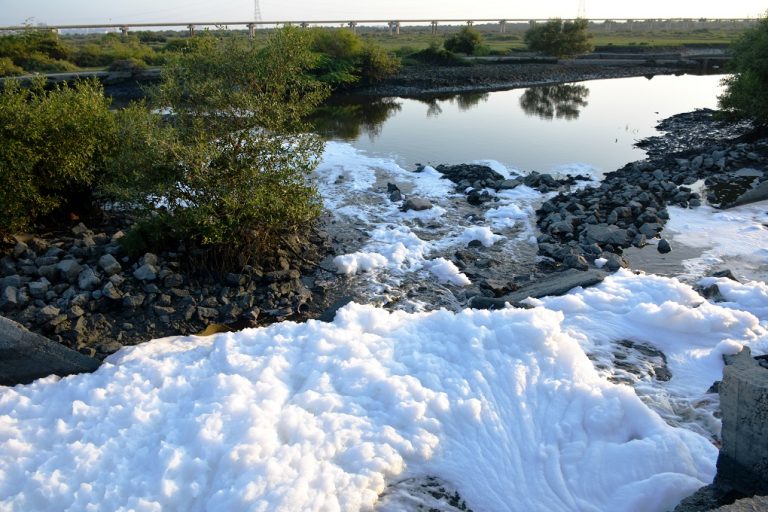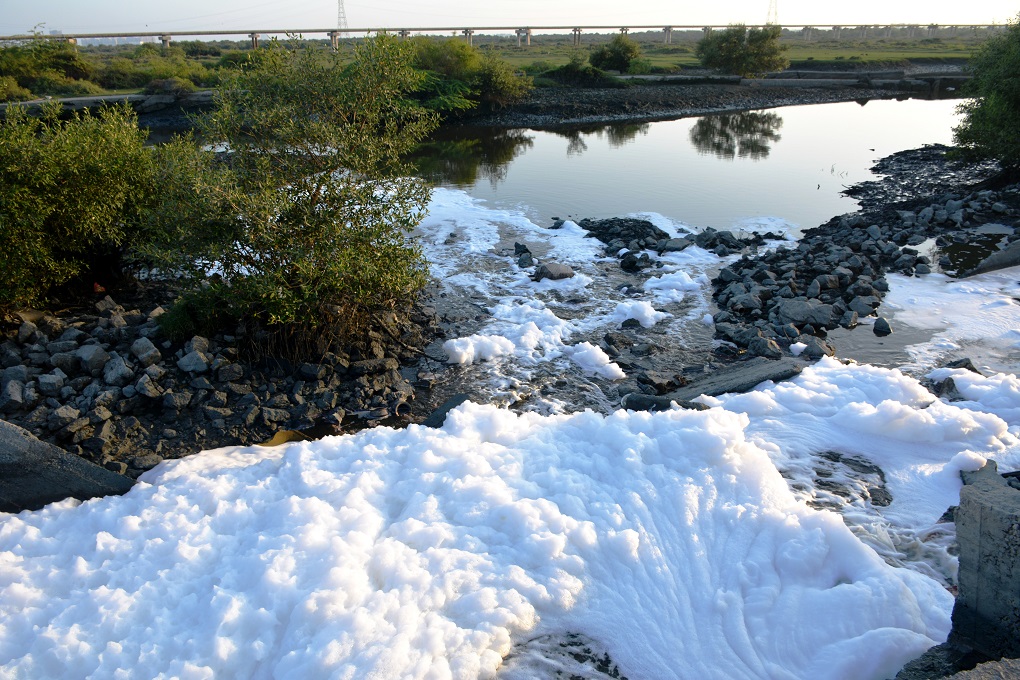
 Sindh Environment Department to install Combined Effluent Treatment Plants in city’s industrial areas
Sindh Environment Department to install Combined Effluent Treatment Plants in city’s industrial areas
Karachi: Sindh Environment Department will set up Combine Effluent Treatment Plants (CETPs) in industrial areas of Karachi, as currently 625 factories are discharging industrial wastewater directly into the sea.
“With the funding of Rs.11800 million, the installation of CETPs in the industrial areas of the Sindh Industrial & Trading Estate (SITE) Karachi, SITE Trans Lyari, Federal B Area and North Karachi, Korangi, Landhi and Super Highway the treated Industrial wastewater from 625 factories will be discharged into the sea, which is still being discharged directly into the sea without any treatment,” Barrister Murtaza Wahab, Advisor to the Chief Minister on Law, Environment, Climate Change, and Coastal Development said while addressing a panel discussion organized by the Environmental Protection Agency (SEPA) on the occasion of World Earth Day on Thursday.
He told that earlier the CETPs were to be set up by the provincial Industries Department but considering the expertise of the Environment Department, the provincial government has decided that the plants should be placed under the supervision of the Environmental Officers so that their procurement, installation, and operation are in accordance with the international environmental standards.
Wahab claimed that the majority of the workforce of the Department of Environment and its subsidiary SEPA is specialized in environmental issues so the installation of the said treatment plants under their supervision would be more efficient and a major source of marine pollution would be efficiently prevented.
He said that the Sindh government was making efforts to introduce vertical tree planting in Karachi because of the scarcity of open spaces to reduce the pressure of air pollution by planting trees in large pots on all floors of private and government high-rise buildings.
Environmental Adviser said that the government is also at the forefront of setting up urban forests and such forests are being introduced not only in posh but also in the middle-class localities of Karachi. Under this plan 140,000 saplings have been planted at Kidney Hill.
Earlier, Secretary Environment, Climate Change, and Coastal Development Muhammad Aslam Ghauri and Naeem Ahmad Mughal, Director General, SEPA, also spoke.
In his detailed presentation on restoration of the marine environment, Naeem Mughal said that the main causes of marine pollution are the flow of industrial and domestic wastewater, port activities, and dumping of the solid waste directly into the sea. This requires industries to discharge their wastewater into the sea after treatment and local bodies have to ensure the installation of treatment plants for domestic wastewater in their areas while environmental requirements in port activities should also be fulfilled.
Professor Dr. Jameel Kazmi of Karachi University in his address said that if the environment of Karachi is to be restored, more and more native plants have to be planted here while foreign plants have to be discouraged so that the overall environment can be promoted through local plants.
WWF Sindh and Balochistan Chief Dr. Tahir Rasheed said that Pakistan ranks seventh among the ten most insecure countries in terms of water. “We can gauge the scarcity of water in our country as a result of which forests are declining rapidly.”
Dr. Ghulam Murtaza Arain, Water Resources Specialist, said that the relentless use of groundwater was deteriorating the ecological balance of the land.
Environmentalists Shahid Lutfi, Jahangir Asad, Dr. Waqar, Nadeem Arif, and Saleemuzzaman also spoke on the occasion.
_______________________